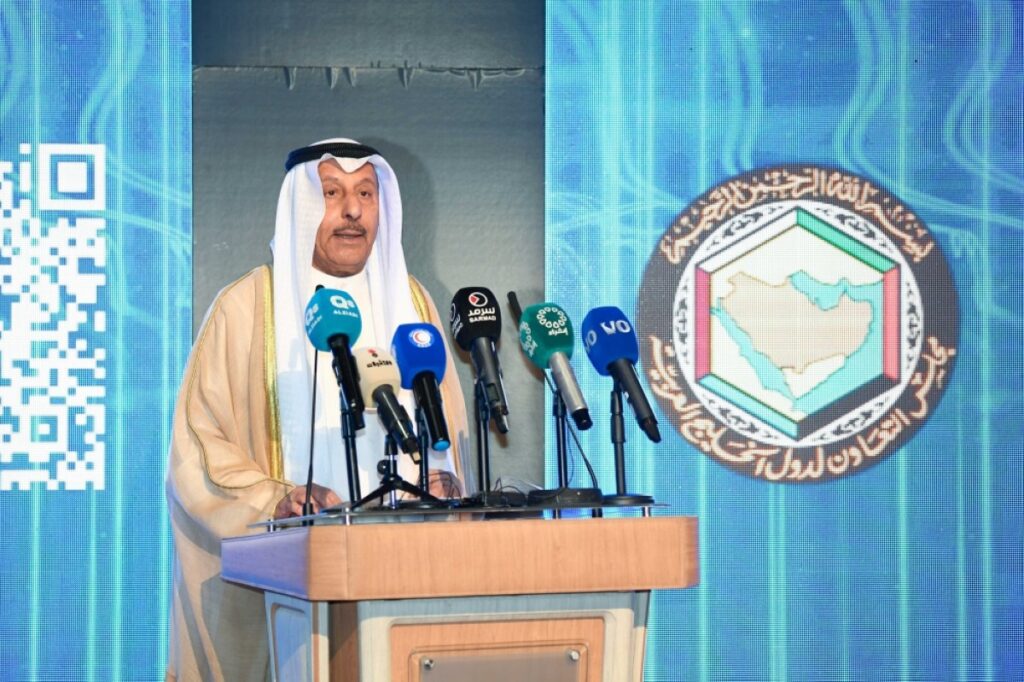KUWAIT: With conflicts increasingly moving into the digital sphere, Mamadou Sow, head of delegation of the ICRC in Kuwait, warned that humanity must not disappear behind algorithms. Speaking at the Gulf Red Crescent First Conference on Artificial Intelligence, hosted by Kuwait on Wednesday, Sow highlighted the need for governments, armies, and technology innovators to “inject humanity in AI usage, so that when it comes to weapons, there will always be a human behind the decisions to take life.”
“When hospitals come under cyberattack during armed conflict, when a hacked water plant cuts off clean water to thousands of families, when misinformation spreads faster than the truth during crises, we witness the humanitarian consequences of the digital age every single day,” he said. He stressed that this is why the ICRC and Red crescent believe international humanitarian law (IHL) must apply both offline and online: “The rules of war, which were born on battlefields, remain relevant in cyberspace. The principles of distinction, proportionality, and humanity are essential in theory and in practice.”
Missing persons
Assistant Foreign Minister for Consular Affairs Aziz Al-Daihani emphasized Kuwait’s commitment to harnessing modern technologies, foremost artificial intelligence, as effective tools to enhance humanitarian response and institutional capabilities. Delivering his remarks on behalf of Foreign Minister Abdullah Al-Yahya, Al-Daihani said that hosting the conference at this pivotal stage reflects Kuwait’s deep awareness of accelerating global challenges and its leadership in promoting humanitarian values and GCC cooperation.
He noted that the event offers “a vital opportunity to exchange expertise, discuss best practices, and develop initiatives that elevate humanitarian action and development media to new levels of sustainability and efficiency.” Al-Daihani highlighted that investing knowledge and innovation in the service of humanity remains a paramount objective for Kuwait. “Employing AI constitutes a strategic step toward realizing New Kuwait 2035 and strengthening the Gulf’s standing in humanitarian work,” he said.

Assistant Foreign Minister for Consular Affairs Aziz Al-Daihani

Audience are pictured during the event.

Mamadou Sow, head of delegation of the ICRC in Kuwait
For the ICRC and red crescent, the intersection of technology and humanity is both a challenge and an opportunity. Sow pointed to the organization’s initiative to develop binding rules regulating the use of AI, particularly in autonomous weapon systems, to prevent future abuses. While acknowledging the risks, he highlighted AI’s “tremendous promise for good,” citing projects such as Trace the Face, which uses facial recognition to reunite families separated by war or migration.
The ICRC and red crescentare also advancing a digital emblem, a virtual protective sign for humanitarian organizations operating online, much like the Red Cross and Red Crescent emblems in physical conflict zones. “The digital emblem would signal to anyone attempting to attack or access these systems that they are protected under international humanitarian law,” Sow explained, describing it as “a digital shield for the 21st century, a reminder that even in cyberspace, humanity must be respected.”
Kuwait Red Crescent Society (KRCS) Chairman Ambassador Khaled Al-Maqamis said the Society has already begun integrating artificial intelligence across its humanitarian programs to strengthen data management, improve needs assessments, and accelerate relief efforts. “AI can make a tangible difference by forecasting disasters, analyzing data to target assistance, and facilitating family reunification for refugees and migrants,” Al-Miqamis said. “Our investment in smart tools will not replace the humanitarian values we uphold; rather, it will reinforce them and extend their reach.”
AI in charity work
Concluding his remarks, Sow said, “as we enter this new world, one truth remains, our greatest strength will never lie in our data, but in our values. Artificial intelligence can make us faster. Cybersecurity can make us safer. But only humanity can make us better.” Chairman of Abdullah Al-Nouri Charity Society, Jamal Al-Nouri, praised the conference’s focus on technology and ethics, noting that the rapid shift toward digital transformation requires charitable organizations to rethink their tools and methods in humanitarian and development work.
He stressed that digitization is no longer optional but essential to improve efficiency, transparency, and access to beneficiaries. “It enables charities to track and document donations accurately, enhancing donor trust, expanding reach through digital platforms, and reducing time and costs through integrated systems,” he said.
Al-Nouri also discussed the future dimensions of AI in humanitarian work, from using data analysis to predict humanitarian needs before crises occur, to supporting decision-making systems that distribute resources more fairly and effectively. He noted that Abdullah Al-Nouri Charity Society has already begun employing AI tools in data analysis, needs assessment, and project evaluation to enhance response speed and decision-making accuracy while remaining cautious about data reliability and ethical considerations.

